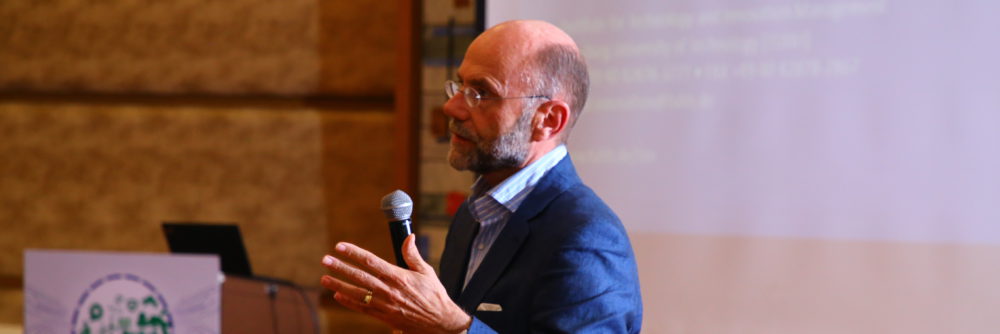The renowned Johanna Quandt Foundation organized a discussion panel with participation of CFI to discuss the the supposed contradiction between breakthrough inventions and frugal innovations on July 2, 2021 in Bad Homburg (near Frankfurt am Main) in Germany. The discussion was organized as the inaugural event of a 2-days workshop with award-winning journalists from Germany. The panel discussion, which also included opening statements in the form of presentations, involved Ms. Barbara Diehl (SprinD GmbH – Federal Agency for Disruptive Innovation) and Dr. Rajnish Tiwari (Center for Frugal Innovation dof TUHH, and Hochschule Fresenius, Hamburg). Both speakers agreed that there has to be no inherent and non-resoulable contradiction between breakthrough inventions and frugal innovations. On the contrary, many breakthrough inventions have a frugal character and vice versa (see, e.g. the talk by Dr. Shyam Vasudeva Rao [from minute 09:31 onwards] or this report of the New York Times on iBreastExam for early detection of breast cancer).

Dr. Rajnish Tiwari used the motto Living in a frugal “AGE” for his presentation, where the term “AGE” was used as an acronym signifying “affordable green excellence”. He emphasized that ecologically sustainable and economically affordable high-quality solutions are no more a mere theoretic “luxury” discussion. Such frugality-based solutions rather constitute an imperative in the race to meet the challenges of sustainable development goals (SDGs) in a world faced with rapdily depleting natural resources. Digital transformation, in his view, is a potent enabler for the frugal AGE.
A cornerstone of his talk was built by the results of an ongoing study titled “Envisioning the Future of teaching and coaching for creativity, innovation and entrepreneurship” (ERASMUS+ project, grant number: 612537-EPP-1-2019-1-SI-EPPKA2-KA). This study shows in a particularly impressive way, why frugality and the breakthrough-character of an innovation solution can go hand-in-hand.

Empirical investigations based on mixed-methods (literature review, expert interviews, stakeholder workshops) suggest that the digital transformation possesses an immense potential to promote creativity, innovation and entrepreneurship crucial to meet the challenges of SDGs and ageing societies as it enables life-long learning in a user-friendly, resource-savvy and effective manner. Reskilling and upskilling can be achieved in a tailor-made (individualized) manner with high quality (e.g. through use of artificial intelligence, virtual reality etc.) with anytime, anywhere formats that substantially redurce the (opportunity) costs for learners while enabling significant economies of scale for providers of such education. Detailed results of the project were later presented at the R&D Management Coneference 2021, where additionally also Prof. John Bessant in his keynote addressed the need for frugal solutions.
In German: Programm des Johanna-Quandt-Wirtschaftsstipendiums 2021
